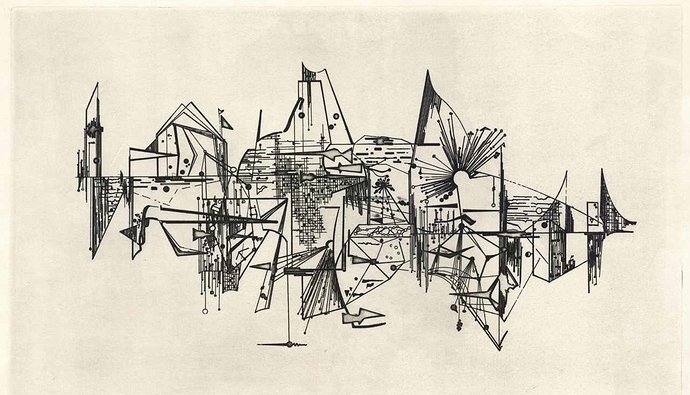Musician Organization
Why It’s Important to Grow Your Musical Network and Play with More Than Just Your Band
The Problem:One of the biggest struggles for any musician is organization. Organizing yourself and those you choose to make music with will always be a challenge for audio artists. Maybe it’s the ego, the “rock star attitude,” that can follow talent and success all too quickly; maybe it’s just the fact that musicians are the kind of people who don’t like being told what to do; or maybe it’s just because organization isn’t always fun. Like any enterprise, a musical project involves some necessary elements that aren’t always congruent with the creative attitude that attracted the participants in the first place.
The Solution:
Create and define your musical network. Foster relationships with other musicians, recording engineers, producers and the like. Befriend them, create with them, show interest in their musical interests and make them a part of your own. Always be aware of the stigma I mentioned above and prepare accordingly. Prepare your attitude, how you choose to grow your network, and how you plan to motivate those you wish to create with. Unfortunately, the most creative people aren’t always the easiest to work with. Prima donnas can often do more harm to your creative project than good. It’s important to remain humble and surround yourself with like-minded audio professionals.
Why It’s Important:
Creative importance – Constantly growing your musical network exposes you to new perspectives as an artist, engineer and producer. It allows you to explore new ideas that you may not have come up with on your own. From the micro to the macro, you will inevitably discover musical avenues that you would miss by yourself. Not everyone hates musical genre constraints as much as I do, but even being exposed to different musical mindsets will help you deepen your own music, even if you choose to only play a specific genre.
Resource importance – The more musicians you know, the longer your list is of capable backup musicians is in case one of your key players is unavailable. Plus, having a wide network provides new musical resources such as new instruments or recording equipment, and new skill sets. As much as I desire to be proficient in every instrument that exists, this probably won’t come to fruition in the near future. If I want a bad ass sax solo on a track I’ve recorded, I’ll need the help of a sax player. Consequently, the more players I know, the more likely that I will be asked to provide such support. Contributing to others’ musical creations is just as artistically rewarding as creating something yourself.
Professional importance – Connecting with a wide range of audio professionals shows others that you’re serious about your craft and about always growing as an artist. Most musicians and professionals aren’t too keen to talk about the business side of music, but it is always important to be perceived as professional (whether or not you live the “rock star lifestyle”). Being connected with other audio professionals helps cement your status in the musical community and makes people more likely to listen to what you have to offer.
How Is Your Network Defined?
How you choose to define your network is important because it ultimately has an influence on you as an individual musician. Some, like myself, are willing to grow their network as large as possible, no matter how wide a range of interests are included in the network. Others, however, might not be so inclined to define their networks so broadly. A country singer-songwriter in Nashville might not be as willing to connect with a metal band in Austin, Texas. So how you choose to incorporate people into your network is an important factor in determining who you are as an artist.
I’d like to take a moment to expand on this and explain why I have such distaste for musical genres and why I choose to keep my personal musical network so open. First, I don’t deny that musical distinctions exist, that’d be silly. No, what I mean when I say, “I don’t like genres” is I don’t like how they have the potential to pigeon hole musicians. Just because I prefer one genre or another, doesn’t mean I can’t appreciate all of them. For me, personally, I not only appreciate all genres, I can find music the fits within each one that I truly do love; and because I truly do love music from every genre, I enjoy playing and experimenting musically within each genre. In fact, I find that playing traditionally within each genre gives me inspiration and ideas to expand my own musical vision (which, as I’m sure you can guess, I define as “genre-less”).
I’ve been focusing a lot on the inclusion of other musicians in your network, but it’s important to note that your network can, and should, include more than just musicians. As a well-rounded musician, you’ll want to associate yourself with people not just in the creative side of things, but also with members of the business-side of music, the recording-side and the performance-side. Managers, promoters, studio owners, engineers, producers, equipment technicians, club owners, practice space owners and even store owners can all provide valuable resources to your audio endeavors. As I mentioned earlier, sometimes these different players are involved in aspects of music that aren’t always the most fun. I can speak from experience when I say loath other professional musical processes that aren’t simply creating and performing music. Booking gigs, buying and repairing necessary equipment, and finding reliable practice spaces can definitely suck. But by understanding why I don’t like these tasks helps me better manage them and also helps me allocate them to members of my musical community that might do a better job than myself; ultimately keeping me satisfied as an artist.
Give Attention Where Attention Is Due.
No, you might not always give equal attention to everyone involved in your network. In fact, you probably never will, and this is okay. It wouldn’t be feasible to give equal attention to all those involved, especially if you have a large network. But an appropriate amount of attention is necessary for the network to continue to provide benefits. How do you know how much attention is necessary for who? You have to decide based on your creative process, your creative goals and the current state of your projects. Most importantly, give attention to those that give attention back. You’ll find that people’s priorities change, and yours will too. This is okay, so long as you understand why others’ priorities change and act accordingly to readjust your own focus to continue to benefit your overall vision. Having a pretty robust musical network myself, I have found that participation is usually cyclical. I’ll spend a varying amount of time intensely involved with some members of my network, making, recording and playing music that is congruent with each other’s interests and goals at the time. Ultimately, this participation is somewhat finite. Eventually, the priorities of one or more of the participants changes, which leads to less and less time spent with each other. This happens for a myriad of different reasons: maybe we finished the project we were working on, maybe some of the players became interested in another, newer project of their own; maybe life introduced constraints like a new job, or relocation, or a serious romantic relationship; maybe someone died! The point is, you never know. You never know why members of your network’s priorities change, you just have to roll with the punches. If you have a lot of vested interest in a particular project it can be emotional when others’ priorities change. In the decade or more that I’ve been seriously involved in music, I’ve had to accept such change in a number of projects. It can be upsetting, no doubt, but you mustn’t take it personally. In my own ventures, I’ve learned to just appreciate the time I spend playing with all of the talented people I know, and keep on keepin’ on. No matter what, just continue to create music. Again, the process is cyclical; you’ll find new, engaging musicians that will help you explore creativity you never knew you had and you’ll undoubtedly reconnect with old friends and members of your network that will rekindle past musical interests. By simply being receptive to the musical world around us and keeping genuine interest in the members of our musical networks, we’ll never run out people to create with, and we’ll certainly never run out of music to create.

